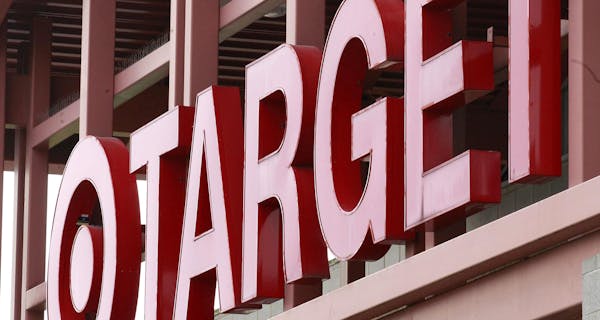The 26th floor of Target Plaza South used to be a place that visitors rarely — if ever — glimpsed.
But on Wednesday afternoon, Target Chief Executive Brian Cornell invited more than 50 community leaders to visit the nerve center of the Minneapolis-based retailer's operations. His message: While Target is in the midst of major upheaval that has meant the loss of more than 2,000 jobs in the Twin Cities, it is here to stay and will keep giving 5 percent of its pretax profits to local communities.
Noting that the company began to get questions in the wake of the layoffs about whether it might relocate its headquarters, Cornell set the record straight.
"We're not leaving town," he said.
And he said the company's charitable giving "will continue to be a hallmark of the company" even as it goes through other significant changes.
He added: "You can expect us to still be very involved in supporting initiatives here in the Twin Cities and making sure that Target plays an important role in both Minneapolis and St. Paul."
The meeting and cocktail reception, a first of its kind for Target, was yet another sign of change at the company since Cornell arrived as its first outsider CEO last August.
After Target named its first leader not from the Twin Cities, some had worried that the company might step back from some of its civic commitments amid pressure to boost its bottom line for shareholders.
Cornell never explicitly said the word "layoffs" to the crowd, but instead referred to the "changes to our headquarters structure" and efforts to "simplify the way we work." But in recent months, Target has laid off 2,350 headquarters employees in the Twin Cities, which has sent tremors throughout the region where Target is the largest employer in downtown Minneapolis and the second-largest public company in the state. On Wednesday, Target also began notifying 180 employees at its tech offices in India that their jobs were being eliminated.
In January, Cornell also pulled the plug on the retailer's 133 stores in Canada, the reverberations of which were felt back in Minneapolis.
"Those were important decisions for the company," he said. "I think today, we're a stronger business because we're a lot more focused and we've addressed some tough issues."
These changes, he added, are not about Target's short-term performance. "It's about making sure this company is here for years to come," he said.
Bruce Nustad, president of the Minnesota Retailers Association, gave Cornell high marks for talking openly to the community in the wake of so much turmoil.
"When you see companies in transition, sometimes you see them curl up into a ball," he told Cornell. "Target has not done that, so congratulations."
The layoffs had created some uncertainty in the community, said Steve Cramer, CEO of the Minneapolis Downtown Council.
"But having it come right from the CEO with his leadership team right there was very reassuring," he said in an interview Thursday. "It's been a very tumultuous time within the company and some of that has spilled out into the broader community. So kudos to them for doing this. They didn't have to."
It was also the first time Cramer met Cornell in person. He said he never met Cornell's predecessor, Gregg Steinhafel, a career Target executive.
Some of the other attendees Wednesday included Dave St. Peter, president of the Minnesota Twins; Eric Kaler, president of the University of Minnesota; and Minnesota Senate Majority Leader Tom Bakk. Executives from the Minneapolis Urban League, United Way, Catholic Charities, and the Walker Art Center were also sprinkled in the crowd.
The meeting was the brainchild of Laysha Ward, Target's chief corporate social responsibility officer. The group met in the company's new social media command center, a room on the 26th floor where executives can monitor chatter about the brand. "In many ways, it's symbolic of the transformation underway at Target," Ward said.
Cornell walked the audience through Target's strategy as it works to evolve as more consumers shop online and as its core shopper is increasingly a more urban, younger mom.
He fielded several questions in which attendees tried to delicately glean some insight into the future direction of Target's charitable giving and civic initiatives. A couple of questions were more pointed, such as one that probed the company's recent decision to raise minimum wages of its employees to at least $9 an hour.
Former Minneapolis Mayor R.T. Rybak said the company's employees play an even bigger role in the Twin Cities, the company's hometown. Nearly every civic organization around town has someone from Target involved at a high level, he said.
"I just have to say a lot of people are holding their breath right now, hoping that you send a pretty good signal internally that all of these talented people rooted in the community are encouraged to do that," Rybak said. "I know everybody has their plates full. But I also know there is an incredible legacy in this community."
Cornell nodded.
Kavita Kumar • 612-673-4113
Exxon Mobil deal with Pioneer gets FTC nod, but former Pioneer CEO Scott Sheffield barred from board
Eden Prairie refrigeration facility laying off 91 workers

